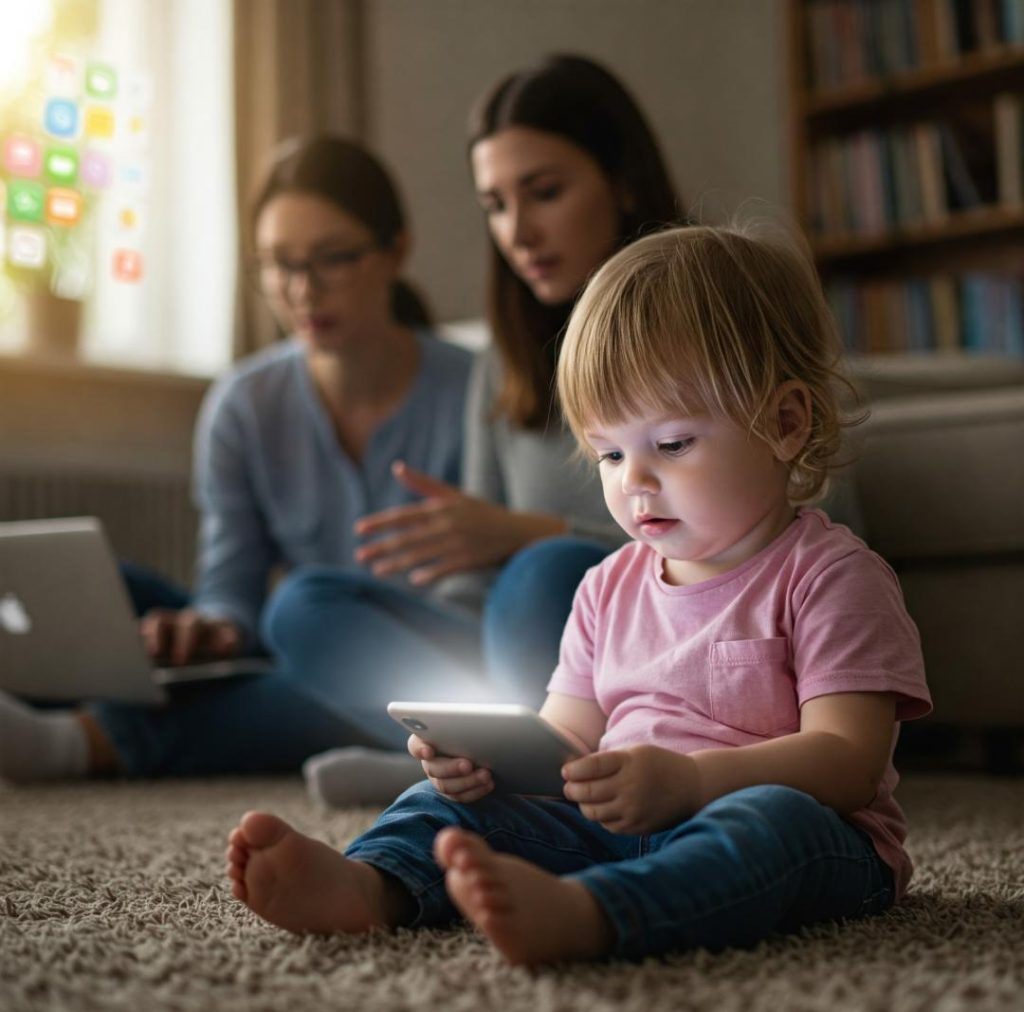
Parenting, Screens & Conditioning: A Digital Age Concern
The digital age has brought about numerous benefits, but it has also introduced several concerns, particularly when it comes to parenting. The recent incident of a child in Jammu & Kashmir being found watching adult content on YouTube despite being in restricted mode is a stark reminder of the need for effective screen regulation and parental interaction. As parents, it is our responsibility to ensure that our children are exposed to a healthy and balanced environment, both online and offline.
In today’s tech-driven world, it’s not uncommon for children to spend hours in front of screens, whether it’s a tablet, smartphone, or TV. While screens can be a valuable tool for learning and entertainment, excessive screen time can have negative effects on children’s physical and mental health. Prolonged exposure to screens can lead to sleep disturbances, eye strain, and decreased attention span. Furthermore, screens can also contribute to social isolation, decreased physical activity, and a higher risk of addiction.
So, how can parents ensure that their children are not falling prey to the pitfalls of excessive screen time? One effective way is to practice mindful parenting, which involves being actively involved in your child’s life, setting clear boundaries and expectations, and modeling healthy behavior yourself.
Classical Conditioning: Understanding the Power of Associations
Another concept that can be applied to curbing smartphone addiction in kids is classical conditioning, a phenomenon first discovered by Ivan Pavlov. Classical conditioning is the process by which our brains associate certain stimuli with certain responses. In the context of parenting, this means that our children learn to associate certain behaviors or activities with specific outcomes or rewards.
For example, if a child is given a reward or praise for completing a task or behaving well, they are more likely to repeat that behavior in the future. On the other hand, if a child is scolded or punished for misbehaving, they may associate that behavior with negative consequences and be less likely to repeat it.
By understanding the power of classical conditioning, parents can use positive reinforcement to encourage healthy behaviors and discourage unhealthy ones. For instance, parents can set clear rules and consequences for screen time, such as limiting the amount of time spent on screens or setting aside device-free zones in the home. They can also encourage physical activity and outdoor play, associating these activities with rewards and praise.
Parent-Child Interaction: The Key to Shaping Behaviour
Another crucial aspect of parenting is parent-child interaction. Research has shown that children who have a strong, loving relationship with their parents are more likely to develop healthy habits and behaviors. This is because parent-child interaction provides children with a sense of security, trust, and attachment, which is essential for healthy development.
In the context of screens, parent-child interaction can be a powerful tool for shaping behavior. By setting aside dedicated time to play with or engage in activities with your child, you can create opportunities for bonding and attachment. This can help to reduce the likelihood of your child turning to screens as a source of comfort or companionship.
The Role of Parents in Shaping Children’s Behaviour
As parents, it’s our responsibility to take an active role in shaping our children’s behavior and habits. This involves setting clear expectations and boundaries, modeling healthy behavior ourselves, and providing positive reinforcement for healthy choices.
Here are some practical tips for parents to keep in mind:
- Set clear rules and boundaries: Establish clear rules and consequences for screen time, and consistently enforce them.
- Model healthy behavior: Practice what you preach by limiting your own screen time and engaging in healthy activities.
- Encourage physical activity: Provide opportunities for your child to engage in physical activity, such as sports, dance, or simply playing outside.
- Engage in activities with your child: Set aside dedicated time to play with or engage in activities with your child, such as reading, puzzles, or board games.
- Monitor and limit screen time: Regularly monitor your child’s screen time and set limits on the amount of time spent on screens.
Conclusion
The recent incident of a child in Jammu & Kashmir being found watching adult content on YouTube despite being in restricted mode is a stark reminder of the need for effective screen regulation and parental interaction. By understanding the power of classical conditioning and practicing mindful parenting, parents can help to curb smartphone addiction in kids and shape healthy habits and behaviors.
As parents, it’s our responsibility to take an active role in shaping our children’s behavior and habits. By setting clear expectations and boundaries, modeling healthy behavior ourselves, and providing positive reinforcement for healthy choices, we can help our children develop into happy, healthy, and well-adjusted individuals.






